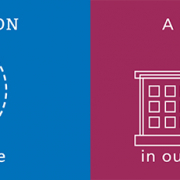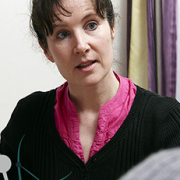Genomics in the NHS: A clinician’s guide to genomic testing for rare disease
Join our new two-week online course for a practical guide to the genomic testing process for rare disease
Over the past year, there has been a rapid increase in the availability and applicability of genomic testing in the NHS thanks in part to the introduction of a National Genomic Test Directory as part of the National Genomic Medicine Service (GMS) in England. With this, many more clinicians feel the need to become familiar with the concepts, systems and processes in the testing process, to ensure that their patients can benefit from advances in the service.
On Tuesday 28 February, the Genomics Education Programme will officially launch its online course Genomics in the NHS: A Clinician’s Guide to Genomic Testing for Rare Disease, which was developed in collaboration with St George’s University of London.
Online learning
Hosted on the FutureLearn platform, the course provides a practical introduction to genomic testing for rare disease and support clinicians with the processes of ordering tests, using the test directory, and feeding back results to patients. Learners will hear from a wide range of people, from genomics specialists to patients with lived experience of rare disease, to help contextualise the scope and importance of genomic testing.
An evaluation cohort who recently completed the course unanimously agreed that they would recommend it to colleagues, with one commenting: “It’s been an enlightening experience. What stood out for me was getting to know the genomic tests amongst other services available to patients. I look forward to maximizing the available services for my patients.”
From bedside to bench (and back again)
The course is designed in a ‘two-week’ structure, with approximately 3-4 hours of learning each week, but it can be accessed any time and completed as quickly or slowly as you wish. We explore everything from the reality of living with a rare disease, and how clinicians can best provide support, to the practicalities of identifying and testing for rare conditions within the NHS. We also consider the implications of testing and results for both individual patients and their families.
First, there’s an outline of the fundamental principles necessary to understand both genomic testing itself and the landscape in which it is offered today. Then, we move on to dig deeper into the practicalities of the test directory, with useful ‘how to’ resources and perspectives on the benefits and challenges from those involved with the service.
Engage with fellow learners
Learning is delivered through a variety of media, including video tutorials, interviews, animations, articles and discussion steps. Interactive elements, including quizzes and activities, allow learners to demonstrate their knowledge and further discussion is encouraged in the comments below each step.
During 15-22 May and 6-13 November, the course will be mentored by experts, who will offer educational live webinars for added support and information.
A second course covering the cancer pathway is currently in production and will be released in early 2023.
For more detail about the course or to sign up, please visit the course page.









